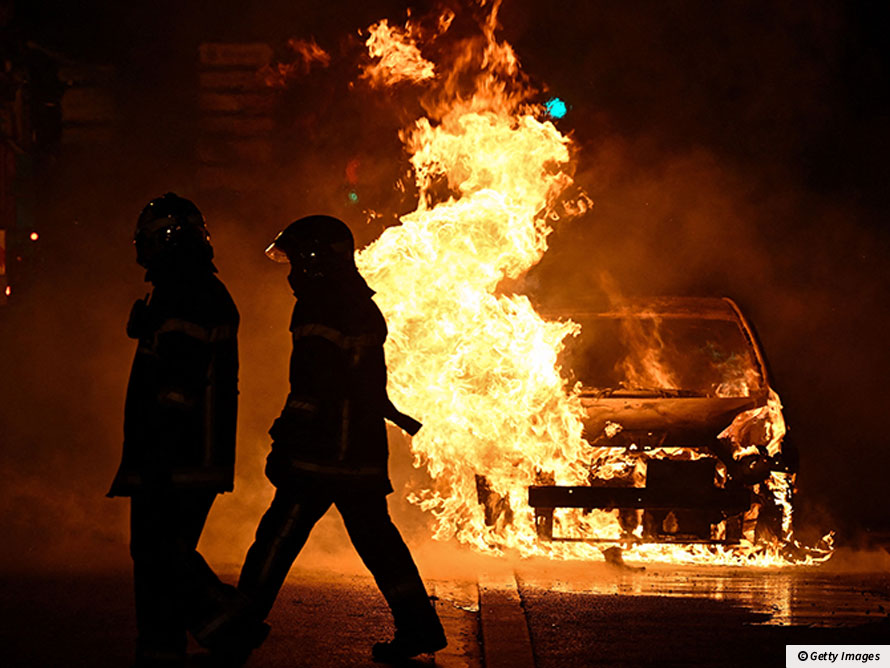Are politicians to blame? Five nights of violence across France have put the spotlight back on France’s treatment of its ethnic minorities. But some say things really are changing.
The week that rioters set France on fire

Glossary
Euros - The currency of the eurozone, an economic region made up of European Union member countries who have decided to use the same currency. The euro was first used in 1999.
Derisively - Showing ridicule or a lack of respect.
Algerians - People from Algeria, a country in North Africa on the Mediterranean coast.
War of Algerian Independence - Also known as the Algerian Revolution. A major conflict from 1954 to 1962 which led to Algeria winning its independence from France.
Seine - France's third-longest river, extending 485 miles from Dijon to the English Channel. It is also a type of fishing net.
Unions - A trade union is an association of workers which can fight for the rights of workers and defend them against unfair working conditions.
Powder keg - A barrel of gunpowder. Often used to describe a situation which could become very dangerous.
